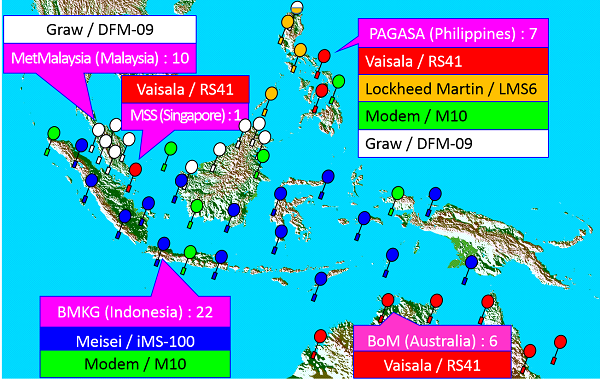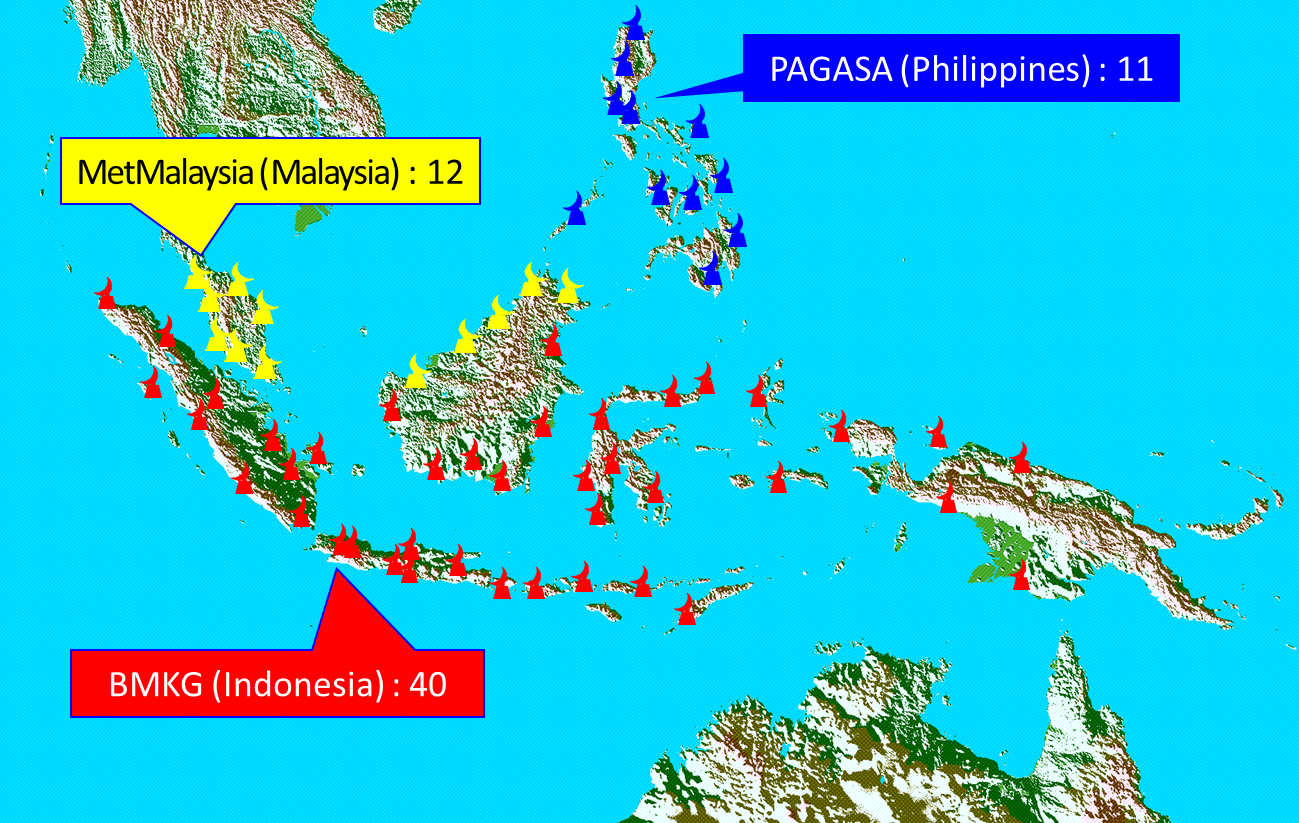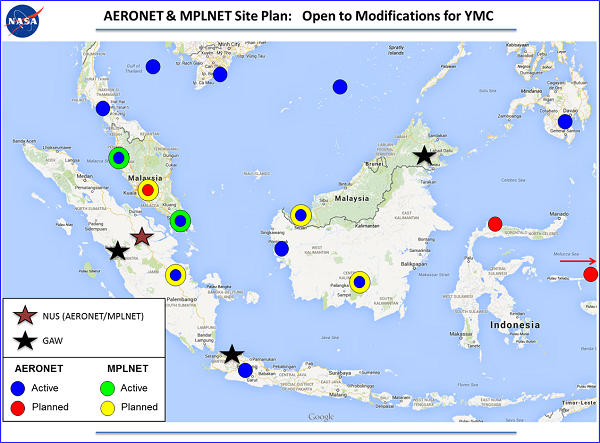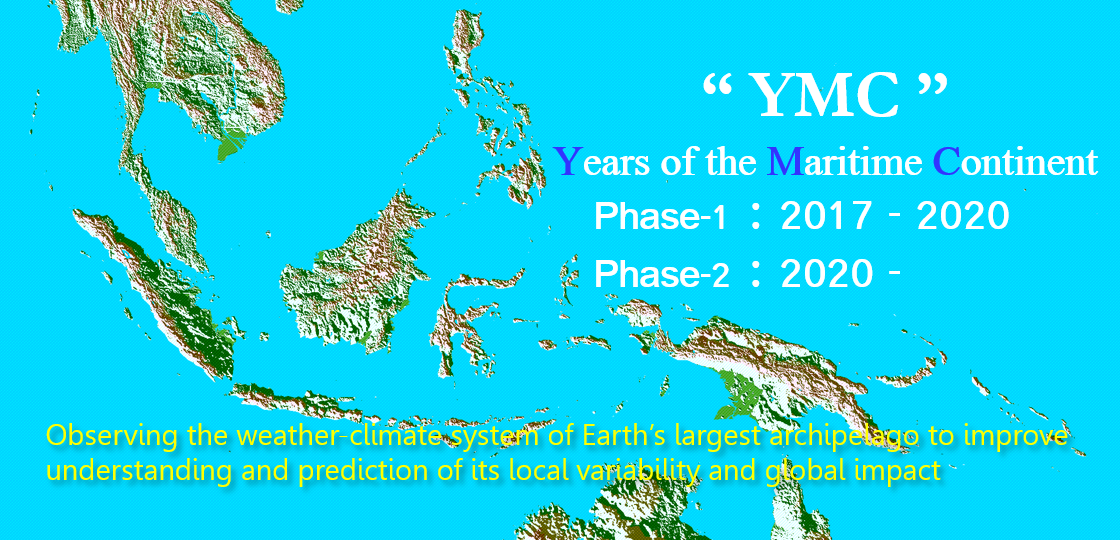Objectives
The goal of the "Years of the Maritime Continent (YMC)" is to expedite the progress of improving understanding and prediction of local multi-scale variability of the MC weather-climate system and its global impact through observations and modeling exercises.
Campaign Period
Phase-1: July 2017 - February 2020
Phase-2: March 2020 -
Phase-2: March 2020 -
Five Science Themes
1) Atmospheric Convection
2) Upper-Ocean Processes and Air-Sea Interaction
3) Stratosphere-Troposphere Interaction
4) Aerosol
5) Prediction Improvement
For more details, please refer;
Five Main Activities
1) Data Sharing
| We will build a 2-year comprehensive database through collecting, archiving, and sharing data from observing networks in the MC region, satellites and NWP products. |
| We will collect special observations through a 2-year field campaign. |
| We will quantify biases/errors of numerical models and potential for improvement of prediction and simulation skills through coordinated numerical experiments. |
| We will demonstrate potential prediction improvement. We will also study optimizations of targeted prediction products for users, information disassembling through modern media, and support to emergence management. |
| We will inform the general public of the knowledge of MC weather-climate system on its local and global impact. We will also train the next generation of scientists, forecasters, and technicians. |
Science Steering Committee
Co-chairs
|
Chidong Zhang (NOAA/PMEL) Kunio Yoneyama (JAMSTEC) |
|
Edvin Aldrian (BPPT, Indonesia) Olivia Cabrera (University of the Philippines) Andreas Fink (Karlsruhe Institute of Technology) Hans Huang (Meteorological Service Singapore) Adiran Matthews (University of East Anglia) Chung-Hsiung Sui (National Taiwan University) Fredolin Tangang (The National University of Malaysia) Matthew Wheeler (Australian Bureau of Meteorology) Weidong Yu (First Institute of Oceanography, China) |
Terms of Reference for the SSC
|
Implementing Advisory Board
Appointment from the participating MC countries
Observation Networks (Routine + Planned/Proposed)
Upper Air Stations

Weather Radars

NASA AERONET/MPLNET (Courtesy of Brent Holben & Judd Welton)

Implementation Plan
